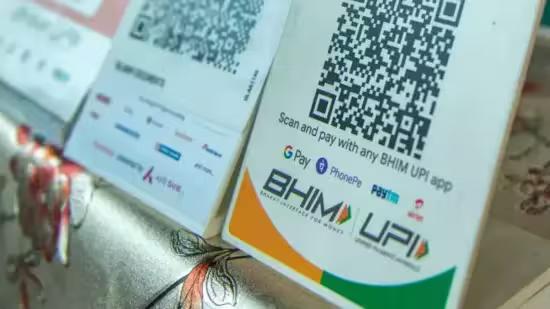
Trinidad & Tobago becomes the first Caribbean nation to adopt UPI
In a significant development, Trinidad and Tobago has become the first Caribbean country to adopt Unified Payments Interface (UPI), India’s flagship digital payment platform. This milestone achievement is a testament to the growing economic and diplomatic ties between India and Trinidad and Tobago. The adoption of UPI by Trinidad and Tobago is a significant step forward in the country’s efforts to promote digital payments and financial inclusion.
During Prime Minister Narendra Modi’s two-day official visit to Trinidad and Tobago, the two countries agreed to explore further collaboration in the implementation of India Stack solutions, including DigiLocker, e-Sign, and Government e-Marketplace (GeM). This move is expected to open up new avenues for trade and investment between the two nations.
UPI is a real-time payment system that allows users to send and receive money from their mobile phones. It is an open-source platform that enables banks, fintech companies, and other financial institutions to offer payment services to their customers. UPI has revolutionized the way people make payments in India, with over 1 billion transactions taking place every month.
The adoption of UPI by Trinidad and Tobago is a significant milestone for the country, which is looking to promote financial inclusion and reduce the reliance on cash transactions. The country’s central bank, the Central Bank of Trinidad and Tobago, has identified digital payments as a key area of focus in its efforts to promote financial inclusion and improve the efficiency of the financial sector.
Trinidad and Tobago is not the only country to adopt UPI. In recent years, UPI has been adopted by several countries, including Nepal, Bhutan, and Sri Lanka. However, Trinidad and Tobago is the first Caribbean country to adopt the platform.
The adoption of UPI by Trinidad and Tobago is expected to have several benefits for the country. Firstly, it will promote financial inclusion by providing access to financial services for the unbanked and underbanked population. This will enable individuals and businesses to make and receive payments easily and securely.
Secondly, the adoption of UPI will reduce the reliance on cash transactions, which is a significant problem in Trinidad and Tobago. The country has a high level of cash transactions, which can be risky and inefficient. By adopting UPI, the country can reduce the use of cash and promote the use of digital payments.
Thirdly, the adoption of UPI will provide a platform for fintech companies to innovate and offer new financial services to customers. This will promote competition in the financial sector and provide consumers with more choices and better services.
The adoption of UPI by Trinidad and Tobago is also a significant step forward for India’s digital payment ecosystem. It demonstrates the country’s ability to promote digital payments globally and provides an opportunity for Indian fintech companies to expand their operations to new markets.
The agreement between India and Trinidad and Tobago to explore further collaboration in the implementation of India Stack solutions is also significant. India Stack is a suite of digital payment solutions that includes UPI, DigiLocker, e-Sign, and Government e-Marketplace (GeM). These solutions have revolutionized the way people make payments in India and have enabled the government to offer more efficient and transparent services to citizens.
DigiLocker is a digital locker that allows users to store their documents and certificates securely. It provides a platform for users to access their documents and certificates online and share them with others. e-Sign is an electronic signature platform that allows users to sign documents electronically. It provides a secure and convenient way for users to sign documents and reduces the need for physical signatures.
GeM is a government-run e-marketplace that provides a platform for government agencies and private companies to procure goods and services. It promotes transparency and efficiency in government procurement and provides a platform for small and medium-sized enterprises (SMEs) to access government tenders.
The agreement to explore further collaboration in the implementation of India Stack solutions is expected to have several benefits for Trinidad and Tobago. Firstly, it will provide the country with access to India’s expertise and experience in digital payments. This will enable the country to implement digital payment solutions more efficiently and effectively.
Secondly, the agreement will provide Trinidad and Tobago with access to India’s digital payment ecosystem. This will enable the country to integrate its digital payment systems with those of India and provide citizens with more options for making payments.
Thirdly, the agreement will promote trade and investment between India and Trinidad and Tobago. By promoting digital payments, the two countries can reduce the costs and complexities associated with international transactions and promote trade and investment.
In conclusion, the adoption of UPI by Trinidad and Tobago is a significant milestone for the country and a testament to the growing economic and diplomatic ties between India and Trinidad and Tobago. The agreement to explore further collaboration in the implementation of India Stack solutions is expected to have several benefits for Trinidad and Tobago, including promoting financial inclusion, reducing the reliance on cash transactions, and promoting trade and investment.
Source:






